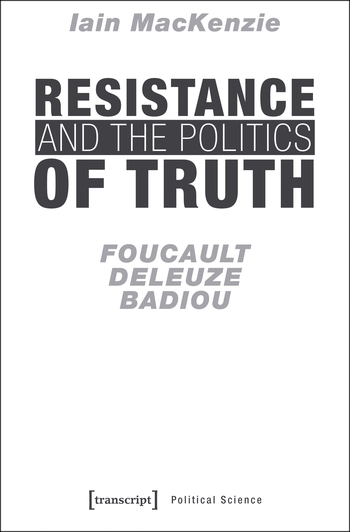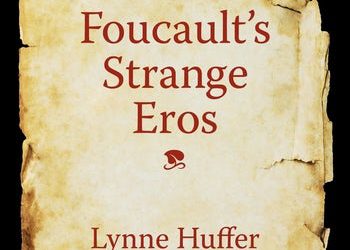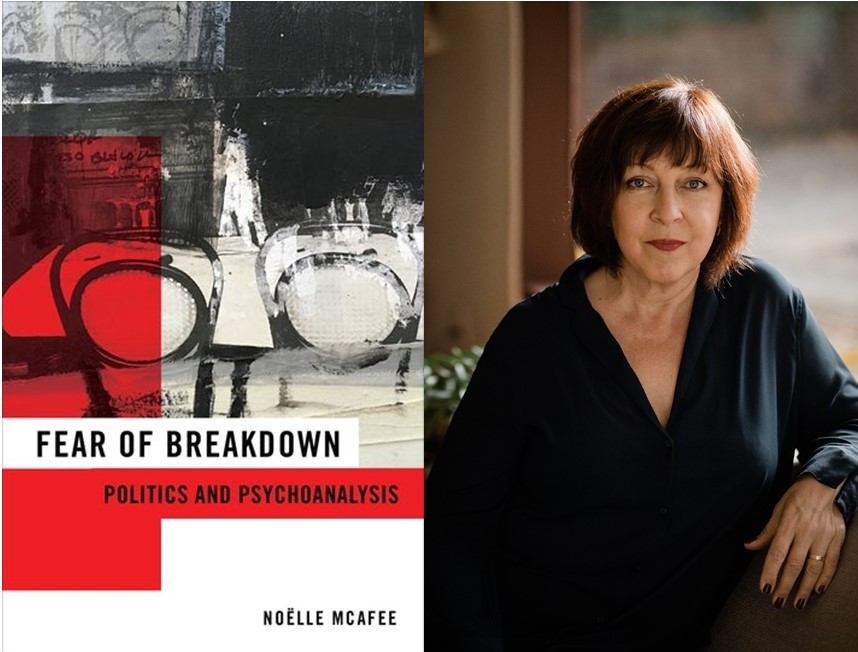Iain MacKenzie on Resistance and the Politics of Truth: Foucault, Deleuze, Badiou

Today, we are honored to have a guest post by Iain MacKenzie, author of the forthcoming book Resistance and the Politics of Truth: Foucault, Deleuze, Badiou. MacKenzie is a co-director of the Centre for Critical Thought and a senior lecturer in politics at the University of Kent. His new book, will be available in the U.S. on June 26, 2018.
• • • • • •
“What are you going to do? The way things are must be challenged.”
THERE IS A LOT of talk about truth these days. On one side, there are those that think we can organize political life without needing to adjudicate on what is true or not: the populist advocates of post-truth. On the other side, there are those that think we must reinvigorate the dormant idea of truth in order to mobilize against these dangerous forms of populism taking hold across the world. But both of these positions seem caught in a mutually sustaining loop of denial: while the advocates of post-truth seem willfully blind to the truth claims they make, so too the new defenders of truth seem blinkered to the complexities of what counts as truth. Both sides think that truth is simple and, therefore, either simply ignored or simply defended.
In this book, I take us back to the idea that all truth claims are complex: not just because the truth can be hard to find or difficult to express but precisely because truth is always embedded within political structures that legitimate it, from whatever side of the ideological spectrum one looks at the world. There is always, that is, a politics to truth. That truth claims are complex does not mean that they can be disregarded in the name of post-truth; that would be to confuse ‘no longer mattering’ with ‘being complex’. Equally, a complex idea of truth does not empty resistance of either its grounds or motivation; that would be to assume that resistance could only be carried out in the name of a single, simple, truth. As the title of this book suggests, I take it that there is no necessary disconnect between accepting that there is a politics of truth and embracing the possibilities of resistance. As I argue, indeed, the idea that all truth claims have a politics to them – that they are marked by contestation and power – constitutes the only ground upon which thoroughgoing practices of resistance, in today’s world, can be sustained.
As the subtitle suggests, though, this argument is conducted obliquely through three thinkers rather than a direct socio-political engagement in the current political discourse of post-truth (in fact, four thinkers, as Chomsky plays an important role in the opening chapter). Each of these thinkers has something important to say about the relationship between truth, politics and resistance. Foucault and Deleuze, as I present them, stand on one side of the debate, whereas Badiou offers a novel challenge and alternative to their position that has gained a lot of currency in recent debates. Ultimately, I argue, Badiou strays too close to dogmatism to sustain an adequate account of the practices of resistance that must be developed in a world where truth is politically complex. The intricacies of each of these positions and their relationship to one another are best left for the book itself. The upshot, though, is that I defend the poststructuralism of Foucault and Deleuze against the humanism and naturalism of Chomsky and against the politics of commitment advocated by Badiou. One of the key innovations that allows me to tread this line is that a certain conception of art can mediate the poststructuralist understanding of the relationship between critique and resistance. If we think about art as a practice of making a difference in the world – as I do, along with Foucault and Deleuze – then this may not be such a strange idea.
But where does this leave us: what are we to do if we want to resist the way things are? The conclusion reached is this: we must be open to engaging in the critique of established forms of knowledge and power by embracing critique as a practice of learning and we must develop this critique by learning the art of resistance. Rather than think that we know truth no longer matters or think that it must matter, we can learn how truth functions in complex ways and make our art of resistance in and among these complexities. That way, we can diagnose the intricacies of the politics of truth and sustain resistance.





